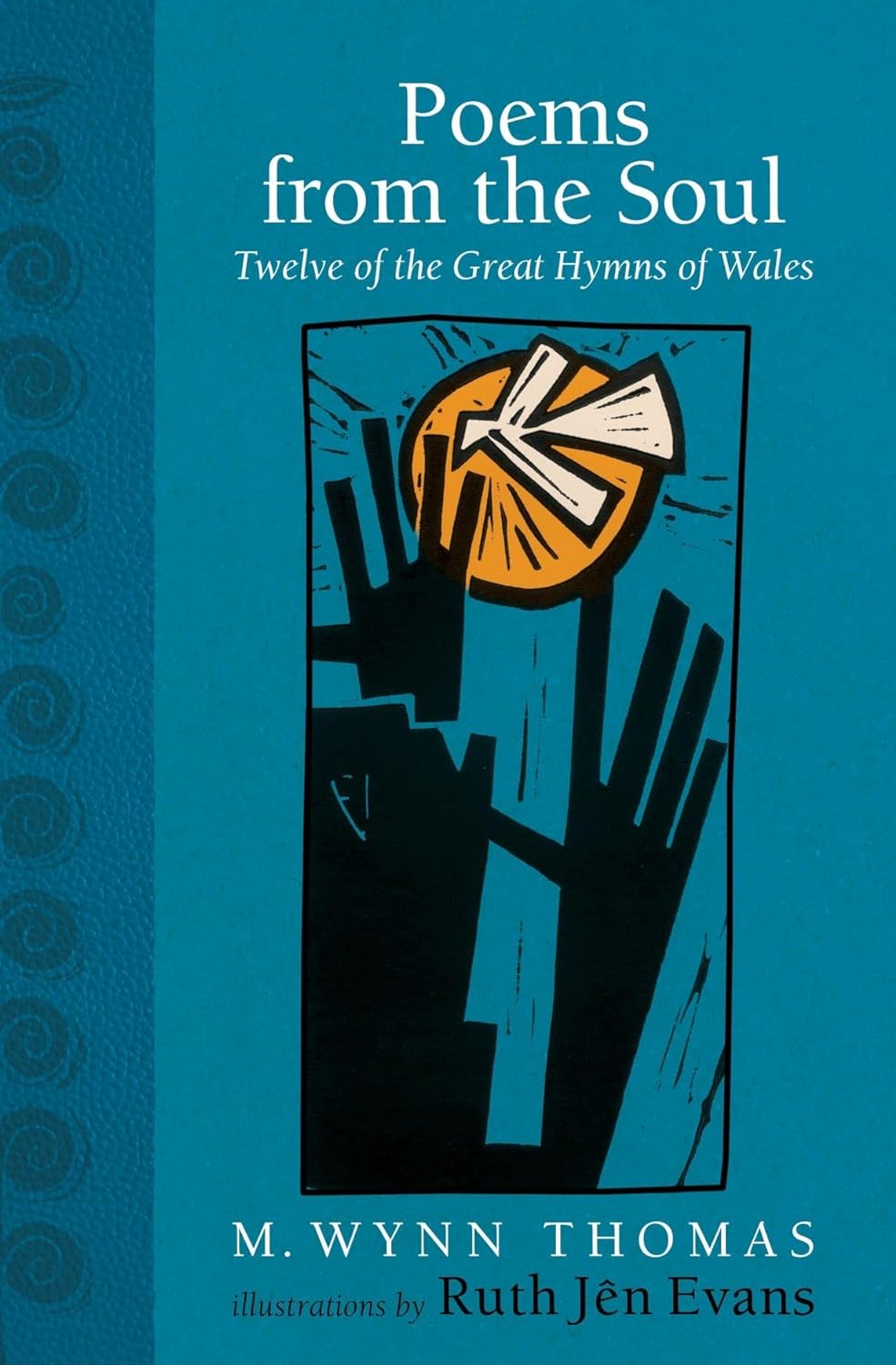
Book - Poems from the Soul: Twelve of the Great Hymns of Wales - Hardback
/
ISBN: 9781837600113 (1837600112)
Publication Date: 29 February 2024
Publisher: Calon
Format: Hardback, 205x136 mm, 112 pages
Language: English
Bringing together twelve of Wales's best-loved hymns, from the eighteenth to the twentieth century, Poems from the Soul reveals the heart and soul of a people's poetry. These are the poems of ordinary folk - blacksmiths, farmers and preachers - and they played a vital role in the creation of the Welsh people.
A review from www.gwales.com, with the permission of the Books Council of Wales:
Beautifully produced and beautifully written, Poems from the Soul presents a history of the Welsh experience in twelve hymns, with Welsh lyrics translated into English by M. Wynn Thomas, and accompanying essays that explore the unique role of hymns in Welsh history and culture. It is not a book to read at one sitting, though some will choose to do so, but a volume to savour over time, essay by essay, with the whole forming a basis for reflection and meditation.
Hymns are the expression of writers from all walks of life, and a powerful cultural medium that connects people in times of joy and pain, and both their creation and their resonance in Welsh culture are explored in this book. In a Wales that has largely forgotten its powerful heritage of hymnody, it is good to be reminded that these outpourings of religious thought can convey much to believers and non-believers alike. They are part of what has made modern Wales, and a part of what we may seek to define as Welshness.
The author has selected twelve classic Welsh hymns, by Gwilym Hiraethog, Ann Griffiths (two hymns), William Williams Pantycelyn (four hymns), Mary Owen, Thomas Lewis, Gwyrosydd, T. Rowland Hughes, and Tomi Evans. As he says in his Prefatory Note, many of them were created in testing circumstances, in a world much harsher than our own, and while there is no reason to lament the loss of that world, the hymns still provide insight into the lives people lived and the beliefs that sustained them (p. xv).
The text of each hymn is presented alongside an English metrical version by the editor, followed by an analysis of the hymn’s background and content. Each is placed in the context of Welsh life, which has, as the author emphasises, been heavily influenced by Nonconformity. Much is made of the suffering of Christ in many of these hymns, suffering which for many was paralleled in their own poverty-stricken existence; yet these passionate outbursts embrace joy and a hope of salvation which brought comfort and light to people’s lives. Due emphasis is placed on the hymnwriters themselves and their background as reflected in the hymns, and a note is appended to each essay about a tune to which the hymn has been sung.
The work is very attractively written, with many striking comments and phrases, such as the depiction of Pantycelyn as the ‘Caravaggio of Welsh hymn-writers’ (p. 51), and the metrical translations effectively convey the message of the original hymns. Though they are primarily expressions of faith, these hymns are seen by the author as expressing ‘the raw needs of ordinary human experience’ (p. x), and there is nothing pious or pietistic about the writing. On the contrary, the hymns are brought to life in vivid language that communicates their message and, most importantly, the ‘raw experience’ of their authors, to readers of any faith or none. Anyone who senses the powerlessness of humanity in a topsy-turvy world can respond to their message.
Hurry! Only 5 left in stock